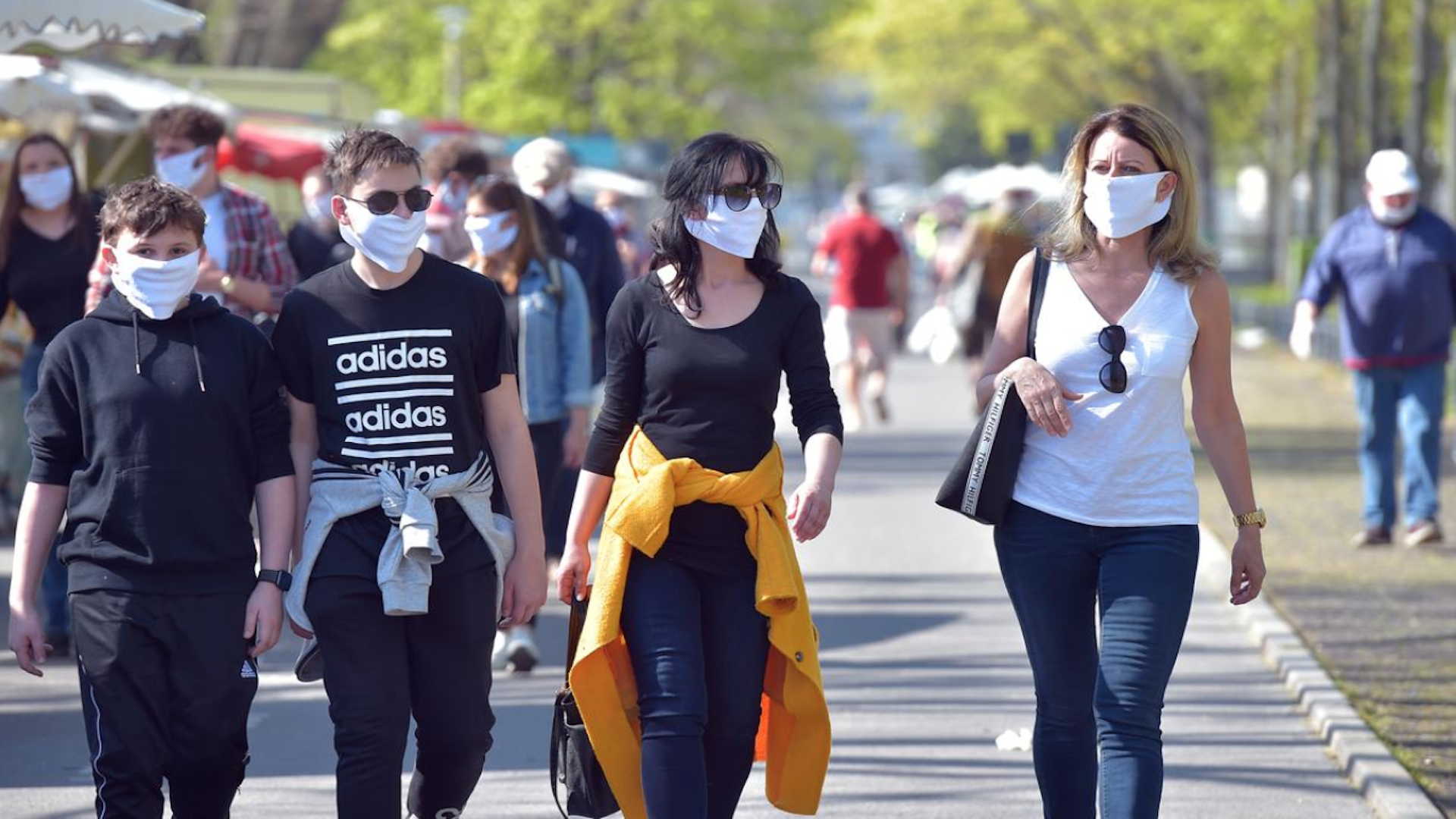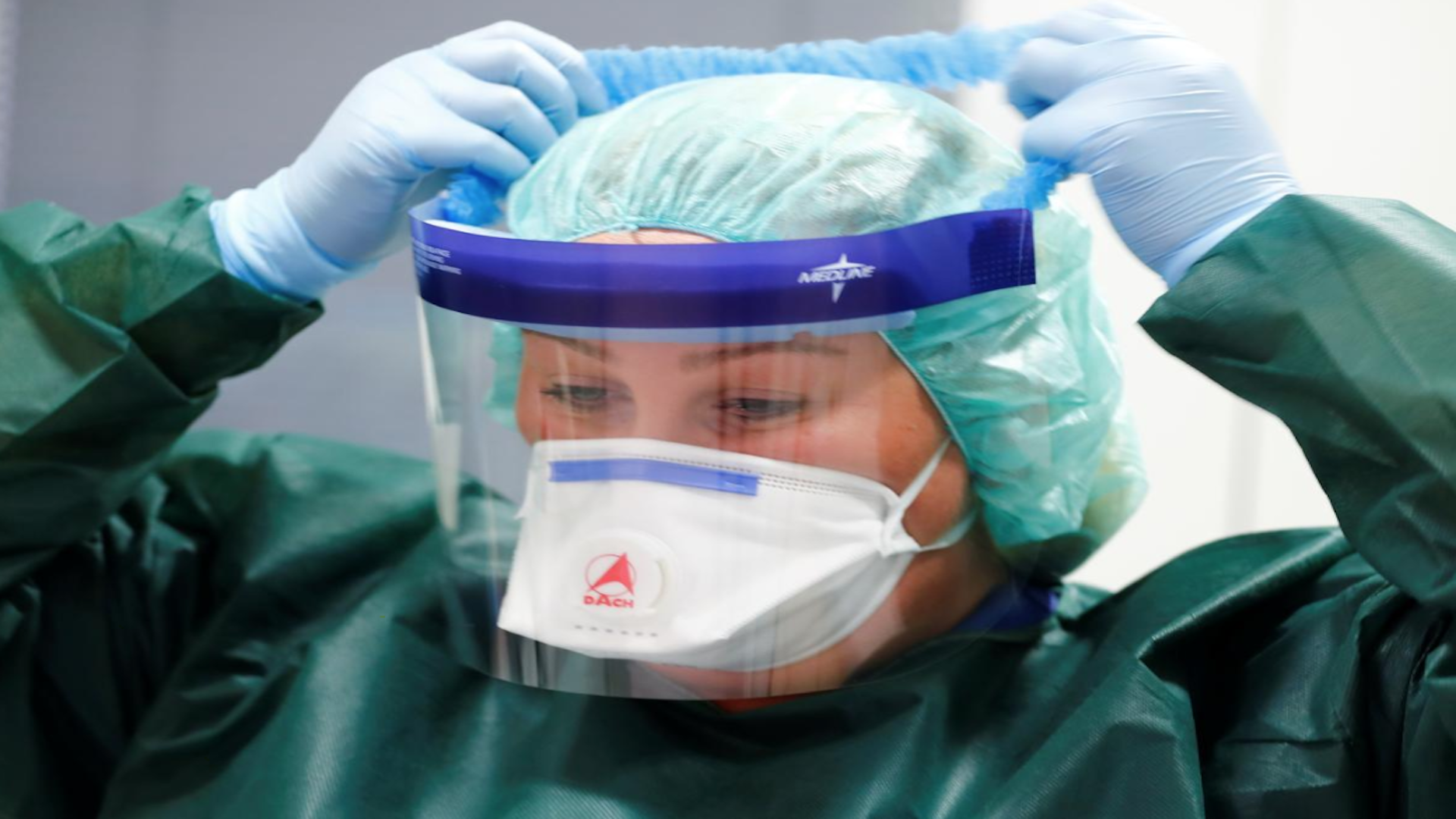
Visitors of a weekly market wear protective masks, as the spread of COVID-19 continues in Dresden, Germany, April 17, 2020. /Reuters
Visitors of a weekly market wear protective masks, as the spread of COVID-19 continues in Dresden, Germany, April 17, 2020. /Reuters
The Robert Koch Institute (RKI) for infectious diseases has warned the second and third waves of coronavirus is likely.
This is a pandemic, and in a pandemic, the virus will continue to cause disease until 60 to 70 percent of the population is infected, RKI President Professor Lothar Wieler told a press conference in Berlin on Tuesday.
The remarks come as many EU countries begin easing lockdowns following an initial peak in COVID-19 cases.
Spain and Italy started allowing people outside to exercise for the first time in nearly two months, and Germany further relaxed restrictions this week, allowing schools, churches and playgrounds to reopen gradually.
France is set to lift confinement measures. However, French Prime Minister Edouard Philippe said there is a "fine line" between easing restrictions on public life and avoiding a new surge in infections.
"The risk of a second wave – which would hit our already fragile hospitals, which would need us to reimpose confinement and waste the efforts and sacrifices we've already made – is serious," he said last week.

Canan Emcan, 31, chief nurse of the infection and virology ward of Essen University Hospital, puts on protection gear, Essen, Germany, March 5, 2020. /Reuters
Canan Emcan, 31, chief nurse of the infection and virology ward of Essen University Hospital, puts on protection gear, Essen, Germany, March 5, 2020. /Reuters
An expert from the World Health Organization (WHO) warned last week that Europe remains in the grip of the crisis despite the reduction in new cases.
The WHO's Europe director Dr. Hans Kluge said COVID-19 is not going away any time soon, adding that public health would need to "have a more prominent place in society" even when it does.
It is "with great certainty" that there will be a second wave, the majority of scientists are sure of that, and many also assumed the third wave, said Wieler.
The number of confirmed coronavirus cases in Germany increased by 685 to 163,860 and reported death toll rose by 139 to 6,831, RKI data showed on Tuesday.
The RKI sees the development of the number of infections positively. "The number of transmitted infection cases continues to decrease. This is very good news," said Wieler.
In recent weeks, between 700 and 1,600 cases had been reported to the RKI daily, he said, adding that the reproduction rate is estimated at 0.71 – which means that on average, not every COVID-19 patient passes the virus on to another person and that the pathogen spreads more slowly.
But he warned that social distancing would remain a routine for several months.